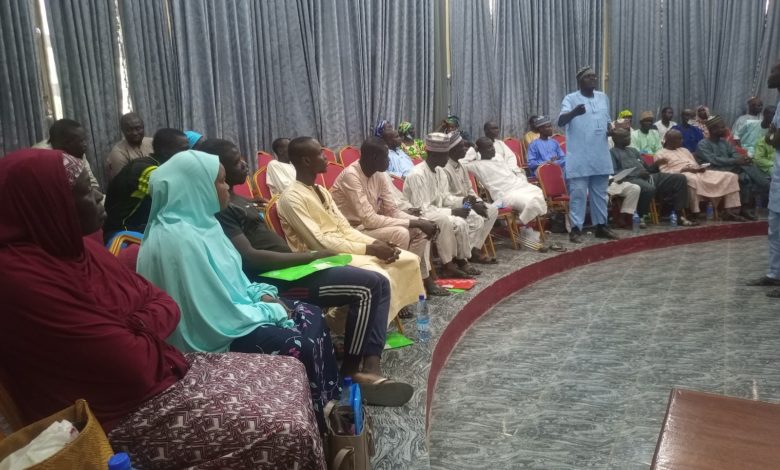
Some local stakeholders have been trained by a Non-Governmental Organisation (NGO) on how to use dialogue and advocacy to counter emerging extremism amongst youths in Borno state, Northeast Nigeria.
The Center for Advocacy, Transparency and Accountability Initiative (CATAI), a Maiduguri-based NGO, had on Friday concluded a two-day dialogue and peace process training for 120 selected community stakeholders from Biu and Jere Jere Local Government Areas (LGA), in collaboration with Northeast Connection.
The trainees will use the skills acquired to tackle both religious extremism and emerging extreme violence amongst youth in Borno state.
Even as the Borno communities strive to build resilience to overcome Boko Haram’s radical extremism, fresh threats to a peaceful future have begun to spring up amongst the youth population.
On Thursday, a court in Maiduguri, Borno state capital, jailed 17 young persons for cult-related offences. A development that underscored the preponderance of armed violence amongst youth, especially those in gangs or squad formation where they plot and commit offences like drugs abuse, gang-raping of women and girls, phone snatching, and armed street fights.
CATAI officials said it carried out a mapping of communities that are flashpoints as well as those with latent issues of violence in the two local government areas of Borno state.
“The training is meant for a USAID supported project for promoting civil participation in a community peacebuilding programme, which is aimed at ensuring that people are not infiltrated by violent extremists especially the expected post-insurgency era; and this is done by setting up dialogue mechanism to ensure social cohesion in communities,” said Abubakar Sadiq, the chief executive of CATAI.
He said his organisation had “observed a certain level of violence and rising social vices and, to some extent, rising cases of extremism that has to do with religion.”
On why the training was important, Abubakar said “it would address the level of infiltration just as we now have communities hosting repentant Boko Haram and so on.”
He added that it is equally important to strengthen the capacities at the community level so that people will be equipped with knowledge on how to manage cases of extremism and infiltration. HumAngle learnt that two wards in each of the two LGAs, and three communities from each of the wards, were the focus areas.
“In Jere, we are implementing the Old Maiduguri ward, Dalaram and Elyakub Community; In Biu, we are implementing Yawi ward, in Filin Jirgi, Tashan Danfulani. We have 50 people who are trained from each of the local governments in the area community dialogue process in countering violent extremism.”
CATAI said it would be setting up six community peace governance platforms across the two LGAs through which they can conduct advocacy and ensure that the key issues that they’ve been raising are addressed.
“The emergence of youth groups who are being formed within some of these communities whereby members tasked themselves with levies for resource mobilisation with which they procure non-ballistic weapons to inflict violence or by defending themselves.”
“These gangs are becoming so powerful because they mobilise resources through crowdfunding that runs into millions of Naira and they use the resources to bail themselves from security personnel whenever they are arrested.”
“It is so bad that members who want to leave the gang are maimed or killed. And prominent amongst these dangerous gangs are groups like ‘7-Low-key’, ‘202’ etc.”
One of the participants at the training, Hajiya Ammah, from the Old Maiduguri suburb, said the training has provided them with adequate capacity with the technical know-how on how to tackle the emergent security challenges in their society.
Support Our Journalism
There are millions of ordinary people affected by conflict in Africa whose stories are missing in the mainstream media. HumAngle is determined to tell those challenging and under-reported stories, hoping that the people impacted by these conflicts will find the safety and security they deserve.
To ensure that we continue to provide public service coverage, we have a small favour to ask you. We want you to be part of our journalistic endeavour by contributing a token to us.
Your donation will further promote a robust, free, and independent media.
Donate HereStay Closer To The Stories That Matter




